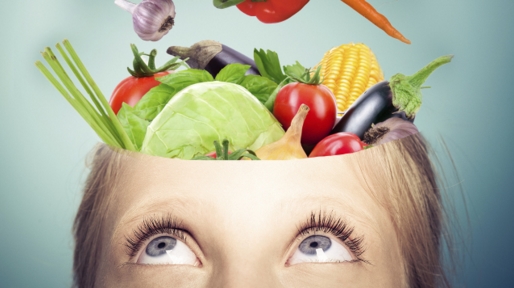
Advertisement
Different food habits and diets affect different age groups mentally. This is according to a new study from the State University of New York at Binghamton.
The study, conducted by assistant health and wellness studies professor Lina Begdache and other researchers from Binghamton, found that mood in young adults – a group that, in this case, was composed of individuals aged 18 to 29 – seems to be largely dependent on meat and other foods that increase the availability of neurotransmitter precursors and their concentrations in the brain. Mature adults or those who are aged 30 and above, on the other hand, appeared to be more reliant on food that increases the availability of antioxidants such as fruits.
“One of the major findings of this paper is that diet and dietary practices differentially affect mental health in young adults versus mature adults,” Begdache said.
According to Begdache, the regular consumption of meat leads to the build-up of the mood-promoting neurotransmitters serotonin and dopamine, noting that significant mental distress was apparent in young adults who ate meat less than three times a week.
Conversely, mature adults seem to benefit more from the regular consumption of antioxidants, as well as the absence of food that inappropriately activates the body’s stress response.
“With aging, there is an increase in free radical formation (oxidants), so our need for antioxidants increases. Free radicals cause disturbances in the brain, which increases the risk of mental distress. Also, our ability to regulate stress decreases, so if we consume food that activates the stress response (such as coffee and too many carbohydrates), we are more likely to experience mental distress,” Begdache stated.
In line with the findings of the Binghamton study, here are the foods that people should eat to boost their moods:
Young adults should eat more dopamine and serotonin-rich foods
Young adults should eat foods that can increase the levels of ‘feel-good’ chemicals such as dopamine and serotonin in their brains.
This can be done by increasing your intake of protein since this nutrient is readily broken down into the amino acids that aid in the formation of dopamine. Serotonin, on the other hand, can be increased by eating foods that contain naturally high levels of tryptophan, which is its immediate precursor.
These foods include the following:
- Dairy foods such as unpasteurized milk, cheese and yogurt
- Free-range poultry such as chicken, turkey and duck
- Omega-3 rich fatty fish such as wild-caught salmon, sardines and mackerel
- Free-range and organic eggs
- Organic bananas
- Nuts such as almonds, peanuts and walnuts
- Dark chocolate
- Tofu
- Pineapples
- Spinach
- Pumpkin and sesame seeds
Regular physical activity and exercise, as noted in the Binghamton study, also has the same effect, and can be done to augment your dopamine and serotonin levels.
Mature adults should boost their antioxidant intake
Mature adults, according to the Binghamton study, would benefit from eating antioxidant-rich vegetables and fruits, as they are known to counterbalance stress. They are also advised to avoid caffeine and excess sugar.
When it comes to antioxidant-rich foods, the general rule is, the more colorful, the better. This means that one must eat an assortment of brightly-colored fruits, vegetables and other food items to fully experience their benefits.
Here are some fruits and vegetables– and their respective antioxidants — that one can try:
- Leeks, onions and garlic contain allium sulfur compounds which, aside from being antioxidants, are also known for their anti-inflammatory, antifungal and antibiotic properties.
- Eggplant, grapes and berries contain anthocyanins which are known for being potent antioxidants.
- Pumpkins, mangoes, apricots, carrots, spinach and parsley are good sources of beta-carotene which has been linked to good eye health.
- Red wine and tea contain catechins, which have been known to benefit cardiovascular health
- Green tea, citrus fruits and apples are packed with flavonoids, which are said to benefit cognition and mental health.
- Cruciferous vegetables such as broccoli, cabbage and cauliflower are rich in indoles which have been shown to have bioactive properties against microbes and cancer cells, among others.
- Soybeans, tofu, lentils, peas and milk contain isoflavones that are considered helpful against obesity, cardiovascular disease and osteoporosis.
- Sesame seeds, bran, whole grains and vegetables contain lignans, which are said to help lower your risk of heart disease, osteoporosis and breast cancer.
- Green, leafy vegetables like spinach are rich in lutein, which is said to help prevent age-related macular disease which is the leading cause of blindness and vision impairment.
- Tomatoes, pink grapefruit and watermelon contain lycopene, a potent antioxidant linked to reductions in bad cholesterol, high blood pressure and cancer prevention.
- Herbs such as thyme and oregano are rich in polyphenols, antioxidant compounds that are said to be effective when it comes to weight management difficulties, digestion issues, diabetes, neurodegenerative disease and cardiovascular diseases.
Food does more than just give our bodies the nourishment and energy it needs to function properly — as shown by the Binghamton study, it can also affect how our moods and minds work.
For more stories about the healing power of foods, visit FoodCures.news.
Sources:
Advertisements







